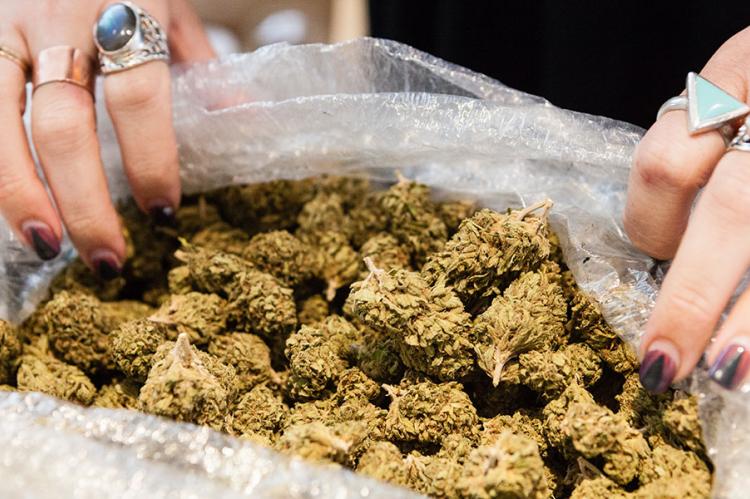Why Does California Still Have a Black Market for Cannabis?
California was the first state to pass legislation for medical marijuana, and it was among the first to generate a legal adult-use weed industry. After just two years of operation, the recreational dispensaries have generated over $1 billion in tax revenue, which has gone to fund childcare and anti-drug programs for the state’s youth, environmental initiatives like park maintenance and wildland restoration and public safety grants for local police and fire departments. It is amazing to see so many good things come from the simple act of legalizing marijuana.
Unfortunately, California’s tax revenues could be much higher and the benefits of legal weed greater — if only it could get a handle on its thriving cannabis black market. Currently, California’s black market for weed is more profitable than its legal one. Read on to learn more about why people are opting for illegal purchases over legal ones and what the state can do to change it.
Taxes Are Prohibitively High
Almost across the board, states with legal adult-use cannabis tax the stuff at an alarming rate. The high taxes on recreational weed serve a few purposes. First, high taxes tend to financially limit how much product a single user can accrue, which seems like an effective way to keep marijuana use in check. More importantly, however, tax revenue is one of the most compelling reasons to legalize marijuana, and it is one that pro-weed advocates tend to harp on. Thus, when cannabis does gain adult-use regulations within a state, lawmakers aren’t afraid to jack the taxes up sky-high.
California piles layer after layer of taxes upon recreational marijuana:
· State taxation. At the state level, California charges cultivators $9.25 per ounce of flower, $2.75 per ounce of leaves and $1.29 of fresh plant material.
· Excise Taxation. The state also requires retailers to charge customers 15 percent on top of the market price of any product sold.
· Local taxation. Counties and cities can levy their own taxes. For example, Los Angeles charges an additional 8 percent on adult-use weed products, and Humboldt County taxes growers an additional $1 to $3 per square foot, based on type of grow.
· Quality control requirements. Though not a tax, per se, California does require cannabis products to undergo rigorous testing, which adds to the ultimate cost of the product.
As a result, adults over the age of 21 who want to purchase weed safely and legally end up paying between 40 and 80 percent above the standard price. In contrast, black market growers and sellers do not face any such taxes, and they can offer their product to customers at a much lower rate. Financially savvy stoners tend to flock to black market sources to save their coin.
Not All Cities Legalized Weed
California is a big state — the largest in population and the third largest in size — and though a Republican hasn’t won a presidential election in the state since 1988, California is much more diverse than many outsiders understand. Though cities on the coast are packed with young progressives who loudly support legalizing weed, much of the interior of the state is less open-minded. Though the State of California allows the legal sale of marijuana products in licensed dispensaries, not all counties and cities are required to provide licenses to hand out. In fact, in 2019, only half of all counties opted to allow commercial cannabis activity of any sort. As a result, potheads and stoners who continue to live in places that prohibit adult-use marijuana have only one viable recourse: the black market.
Dispensary Licenses Are Few
There is not a single state that allows the sale of marijuana outside a licensed dispensary, which means that every state must have a licensing process to give dispensaries permission to operate. Unfortunately, there have been a number of problems preventing California weed entrepreneurs from obtaining their state’s licenses and opening up shop.
Admittedly, this is largely a local issue. Ignoring the cities and counties that continue to prohibit recreational weed, municipalities rather than the broader state are falling short of providing enough licenses to fill demand. Some of this is issues with regulation, which will smooth out over time; for instance, a recent contraction of several hundred dispensaries is unlikely to happen again once regulators stop offering confusing temporary licenses.
However, in general, California simply needs to speed up the licensing process and make it easier for more entrepreneurs to apply — especially entrepreneurs of Color. In the meantime, those lacking access to a legal dispensary or facing interminably long lines at dispensaries close to home are likely to turn to black market weed.
Conclusions
Weed is weed to most consumers. Thanks to California’s decriminalization of the drug, a stoner is unlikely to be arrested for smoking a joint in their home, regardless of where that joint came from. Thus, instead of dealing with the hassle of finding a legal dispensary and paying exorbitant fees for a limited amount of herb, many Californians are opting to continue participating in the black market, which is more convenient, more affordable and more personal than the legal cannabis industry as it stands.
To fix its black-market problem, California needs to take a good, hard look at the problems rampant in its current system — its prohibitively high taxes, its overregulation, its inequitable access — and make sweeping changes. Otherwise, its efforts to support legal weed will likely fall flat within the next decade.
- Log in to post comments

